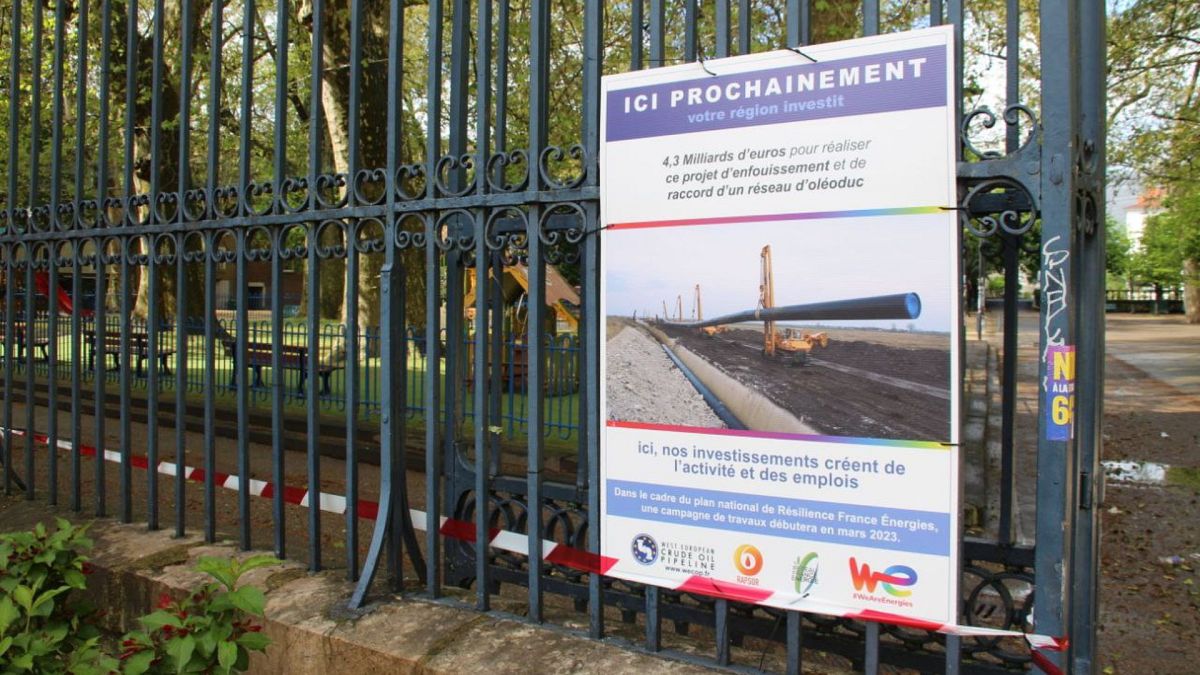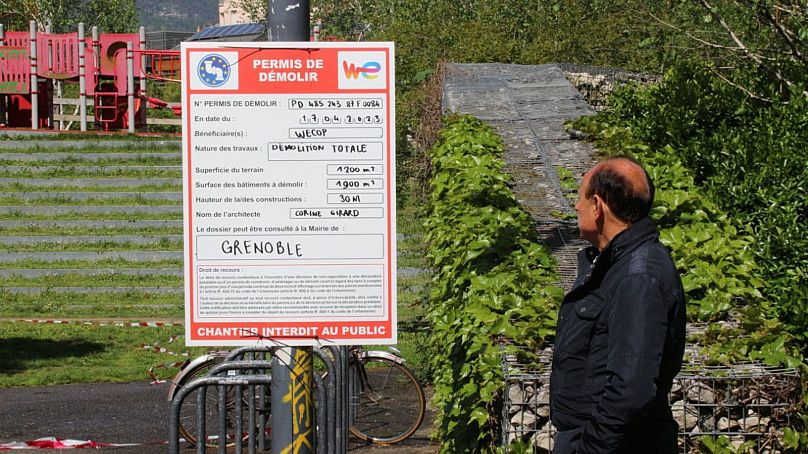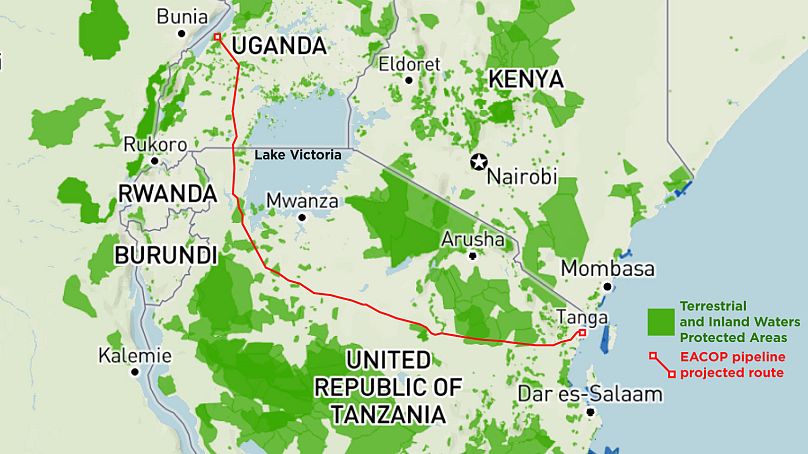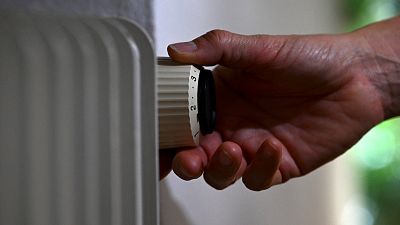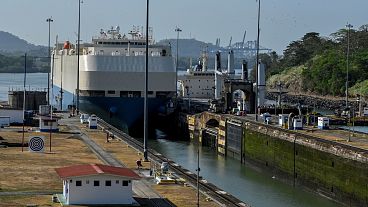The stunt was intended to raise awareness of a huge project in Uganda and Tanzania that will affect 19,000 households.
A giant oil pipeline passing through Marseille, Lyon, Paris and Brussels?
That's what thousands of expropriation letters sent to local residents, building permits in the city centre and even a Twitter account of a non-existent company behind the fake project would have us believe.
All these elements of the hoax were created from scratch by a group of environmental activists called "Le bruit qui court" (the rumour mill).
Their aim was to denounce TotalEnergies' giant oil pipeline project in Uganda and Tanzania. Due to be completed in 2025, it will stretch for more than 1,000km, involve drilling hundreds of oil wells and impact 19,000 households.
"We did in France what Total is doing in Uganda," says the collective in a video explaining the modus operandi of their trick.
On the morning of Monday 24 April, residents of Marseille and Lyon discovered notices of construction work on their front doors and expropriation letters from TotalEnergies in their mailboxes. Everything suggested an actual project was underway in several major French cities.
The collective set up a hotline, with a false switchboard that received more than 1,000 concerned calls.
Volunteers were at the helm to answer calls, parroting "Total's bogus European version of the argument", they explained.
'Putting pressure on Total'
"One of the objectives was to reach more people," says Julie Pasquet, co-founder of the group. "We wanted to reach the regional daily press, to have media talk about the project and put pressure on Total."
She told Euronews that TotalEnergies' East African Crude Oil Pipeline (EACOP) project in Uganda and Tanzania is largely ignored by the media.
"The objective was successful," Pasquet added. "All the media talked about EACOP, we managed to point this project out."
The fake European project would have covered 1,443 kilometres and aimed at transporting 480,000 barrels of crude oil per day.
"We saw the effect it had, it's impossible to do that in France," says the co-founder of the collective. "We can no longer allow this to happen in countries that are dictatorships."
TotalEnergies did not comment on the hoax when contacted by Euronews.
The real project behind the hoax
Total's real project, known as the Tilenga-EACOP, involves drilling more than 400 wells in Uganda as well as building a 1,443-kilometre pipeline between the town of Hoima in Uganda and the port of Tanga in Tanzania.
The project claims to have "the least possible impact and [is] seeking to avoid densely populated and environmentally sensitive areas".
Some oil extraction will take place within Uganda's largest protected area, the Murchison Falls National Park, a site classified by the International Union for Conservation of Nature.
TotalEnergies acknowledges the pipeline will pass through some reserves and a national park, shown in the Euronews map below.
The pipeline will also run for 400 kilometres along Lake Victoria, Africa's largest lake, with NGOs warning any potential oil spill could have a serious impact.
NGOs estimate that 100,000 local residents will lose a piece of land or be completely expropriated, a figure TotalEnergies confirmed in this document.
TotalEnergies also says the project will create 58,000 local jobs and 11,000 direct jobs during the construction phase.
Is this type of action useful?
"We can stop this project by continuing to mobilise," said environmentalist Julie Pasquet.
"The mobilisation is working because Total has announced that it does not have enough funding and that it is extending the funding deadline."
Several international banks such as HSBC, Crédit Suisse and Deutsche Bank, as well as French banks such as Société Générale, BNP and Crédit Agricole, have effectively withdrawn from the project.
"The more the population is outraged, the less possible it will be for them to continue destroying the environment!" says Pasquet.
In February 2023, the request for legal action by six environmental and human rights associations to have the EACOP project cancelled was dismissed by a court in Paris.
